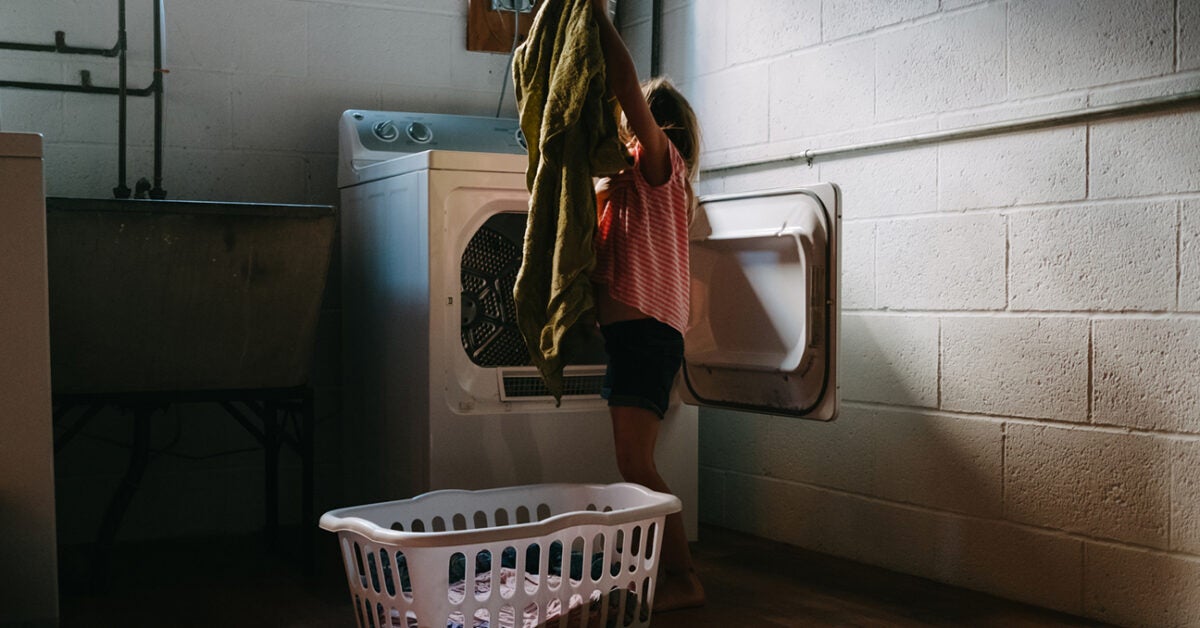Parentification: Causes, signs, and more - Medical News Today

A parentified child has responsibilities placed on them that are inappropriate, considering their age and abilities. These responsibilities can include practical duties, such as paying bills, or emotional support, such as acting as a confidant.
Parentification can have
In certain cases, some degree of parentification may have positive effects, such as building resilience and competency.
Overall, receiving increased support and having therapy
Below, learn more about parentification, including the types, the signs, and strategies for overcoming the negative effects.
Parentification refers to the roles of a child and parent being reversed. Instead of providing emotional and practical support, the parent relies on their child for this.
Parental responsibilities, such as raising siblings and managing the household, are forced on the child. These responsibilities do not typically fall on children, and they can
Parentification
- drug abuse, including alcohol use disorder
- divorce
- economic instability
- persistent neglect
- physical disability or illness
- physical or sexual abuse
Parentification can be parent-focused or sibling-focused. And either type can be instrumental, emotional, or both.
If parentification is instrumental, a child may be forced to take on practical duties, such as paying bills. If it is emotional, the child may have to take on responsibilities, such as, mediating conflict between family members.
It is important to note that in cases of parentification, the duties are age-inappropriate and excessive.
Parent-focused parentification
In this case, a child might
- earning money for the family
- managing the family's finances
- acting as a confidant
- providing comfort to other family members
- mediating conflict or being a peacemaker
Sibling-focused parentification
In this case, a child may have inappropriate responsibilities that involve:
- being the primary caregiver for one or more siblings, who may have health conditions that require extra care
- bathing, dressing, and grooming siblings
- providing comfort in difficult situations
- depression
- anxiety
- hyperactivity
- disruptive or antisocial behavior
- aggression
- feelings of shame
- feelings of isolation
- disturbances in interpersonal relationships
- substance abuse
- a range of physical symptoms
Parentification may have negative and positive outcomes. The duration of parentification and
Negative effects
Adults who were parentified during childhood or adolescence might experience:
- substance misuse
- one or more eating disorders
- symptoms of dissociation, such as losing track of time and forgetfulness
- symptoms of personality disorders, such as difficulty managing emotions or challenges relating to self-image
A person experiencing any negative effects of parentification may benefit from discussing it with a healthcare professional, such as a mental health professional.
Find resources for free online therapy.
Some have found that children who care for an ill parent, for example, have little or no time for homework and receive no support in keeping up with their classes. This can lead to lower grades.
Other
Positive effects
An older study looked into the long-term effects of parentification on children with a parent who has HIV. During the 6-year follow-up, there was an association between parentification, improved coping skills, and reduced substance use.
The following steps can help prevent parentification:
- Make sure duties are age-appropriate. When tasks are suitable for a child's age and abilities, it encourages them to develop responsibility. For example, a younger child might feed a pet, and an older child might help prepare a meal.
- Do not delegate parental responsibilities. This might include managing finances and making decisions during challenging periods.
- Maintain boundaries. This might involve not relying on a child for emotional support or treating them as a confidant. For example, during a separation, avoid making negative comments about the co-parent to a child.
For anyone struggling with steps, a counselor or psychologist can help.
Family therapy may also be beneficial. Therapists can
Learn where to access therapy without health insurance.
Therapy may also help address the reversed relationship between the child and parent. For example, some
Learn more about different therapy types here.
A parentified child has practical or emotional responsibilities that exceed their resources or abilities. This reflects a reversed relationship between a parent and child.
The causes of this reversal might
Parentification can have negative effects in the short and long term. Receiving appropriate support, which may include therapy or counseling, can help someone overcome these effects.
To prevent parentification, make sure that a child's duties are age-appropriate and that healthy boundaries are in place, even during very challenging periods.
Comments
Post a Comment